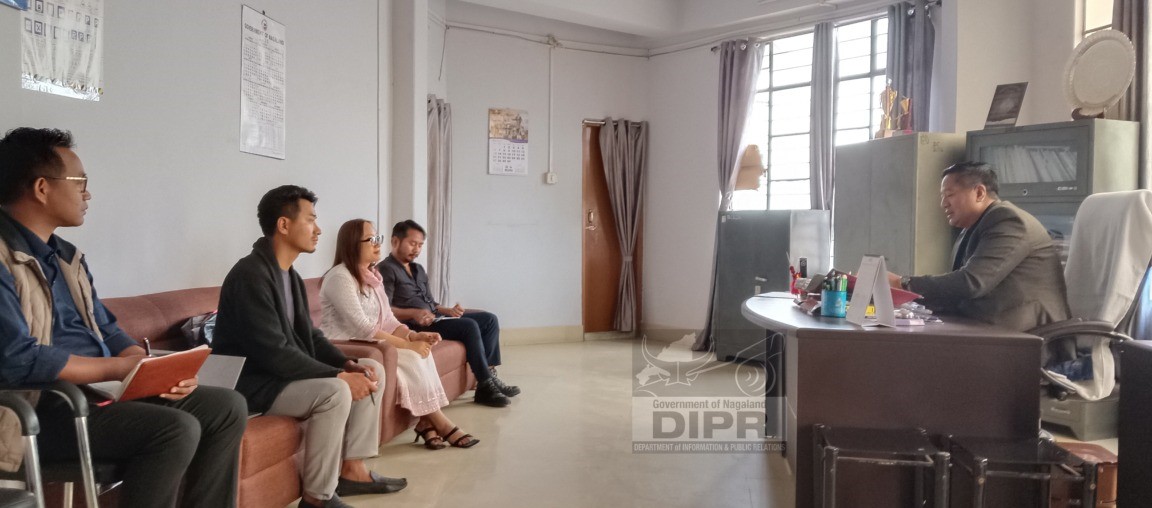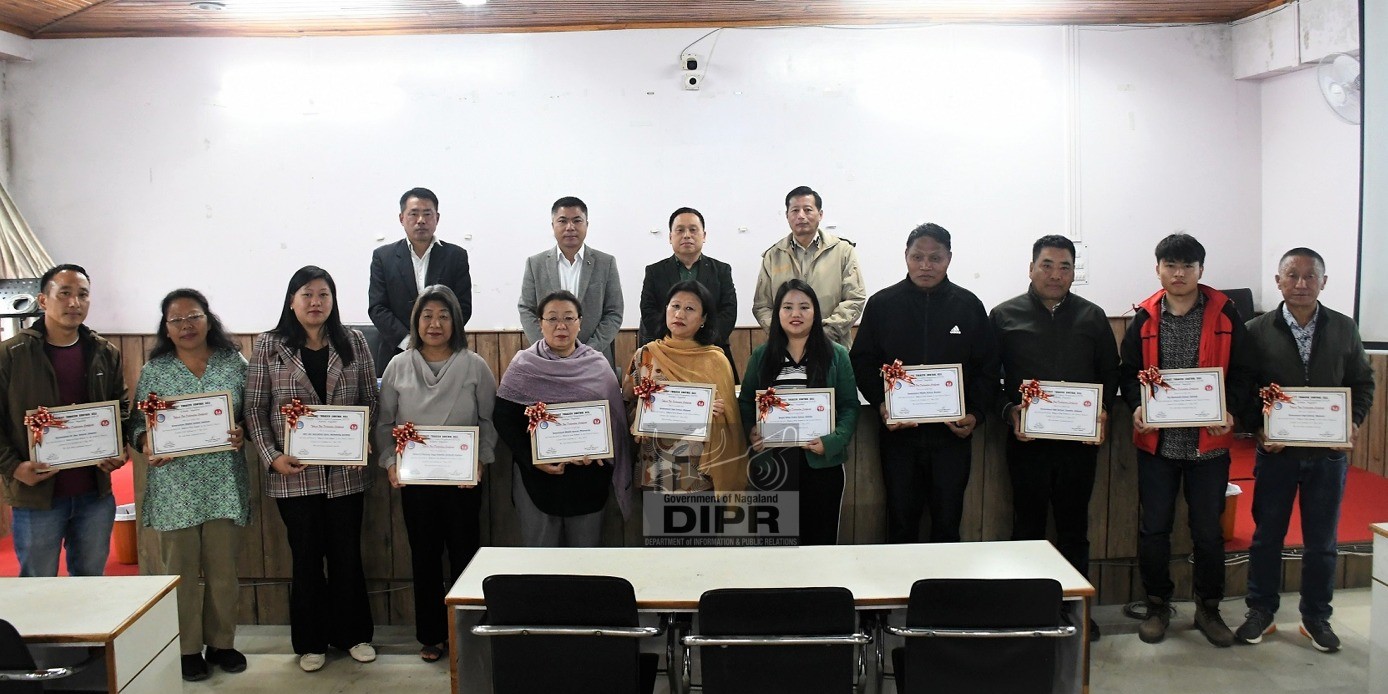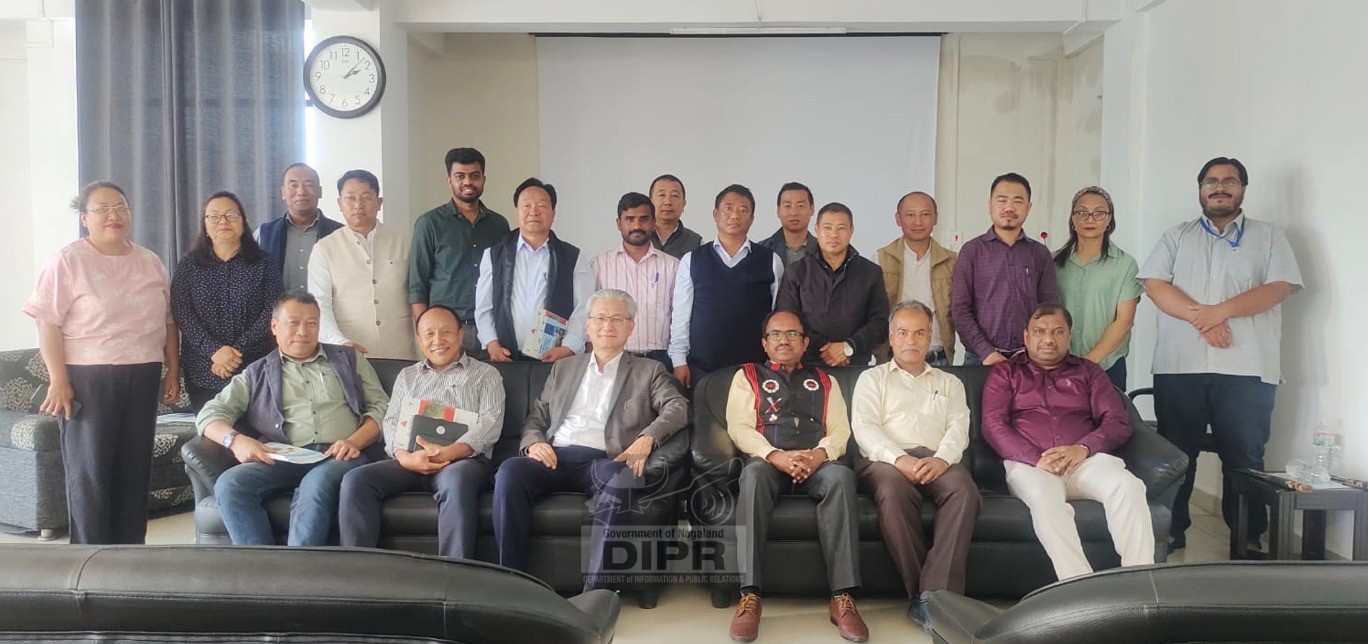The Nagaland State Commission for Protection of Child Rights (NSCPCR) conducted an awareness programme on child rights at the Village Council Hall, Sechü-Zübza, bringing together key stakeholders to deliberate on the collective responsibility of communities, institutions, and individuals in protecting and promoting children’s rights.
Delivering the keynote address, Alun Hangsing, Chairman of NSCPCR, expressed his appreciation to all participants for their presence and commitment to child welfare. He emphasized that spreading awareness at the grassroots level is essential and that child protection must be regarded with the same seriousness as any other developmental priority. Drawing a parallel between state-building and child-rearing, he said, “Just like how everyone is thinking about how to make Nagaland a vibrant state, child protection should also be a collective priority.” He underlined that raising and protecting children in the right way is one of the greatest responsibilities of our time—not just for the Commission, but for every government agency, community, tribe, family, and individual.
Hangsing also spoke about the complex challenges posed by modern technology, particularly the easy access to mobile phones, which has led to children being exposed to inappropriate and harmful content from a very young age. He emphasized that attending such awareness programmes is not sufficient on its own; the key lies in carrying the message forward and applying it within our own families, communities, and institutions.
Imliakum Sanglir, SDO (Civil) of Sechü-Zübza, in his speech reflected on the continuing relevance of child rights, especially in today’s rapidly changing social landscape. While acknowledging the strength of traditional and church-based support systems in rural Nagaland, he also pointed out the cases of child abuse and neglect in urban areas, as often highlighted in the media. Drawing from personal experiences as a parent, he noted how school education is shaping children’s awareness of their rights and responsibilities. He emphasized the need for both schools and parents to create environments where children feel safe, supported, and understood.
The programme included thematic presentations by subject experts on key child protection laws and issues. Aying Wangsha, Member of NSCPCR, gave an overview of the Right to Education (RTE) Act, which was enacted in 2009 and came into force in 2010. The Act ensures free and compulsory education for all children between the ages of 6 to 14 and mandates the establishment of neighborhood schools. It prohibits capitation fees and corporal punishment and requires schools to maintain non-discriminatory admission policies regardless of caste, gender, or religion. Wangsha explained the obligations of both central and local governments under the Act, including maintaining child records, ensuring universal enrollment, and enforcing quality standards in education. She also stressed the role of School Management Committees (SMCs) in ensuring accountability, effective planning, and community involvement in the functioning of schools.
Akumla Longchari, another Member of NSCPCR, gave an insightful presentation on the Protection of Children from Sexual Offences (POCSO) Act. She detailed the six forms of abuse covered under the Act, including penetrative and non-penetrative sexual assault, sexual harassment, and the use of children in pornography. Akumla also elaborated on the comprehensive support system in place for child victims and their families, which includes access to the Childline emergency number 1098, the filing of First Information Reports (FIRs) with the police, provision of free medical care and counselling services, the appointment of support persons to accompany the child through legal processes, availability of free legal aid, monetary compensation for the victim, access to safe shelter homes, continued education, and rehabilitation assistance.
Lichani Murry, Legal Consultant to the NSCPCR, presented a comprehensive overview of the Juvenile Justice (Care and Protection of Children) Act. She explained that the Act criminalizes cruelty against children, child labor, begging, exploitation, and the provision of narcotic or psychotropic substances to minors. It clearly defines protections for children in conflict with the law, including the prohibition of handcuffing, jail lock-ups, and the death penalty. Murry emphasized the Act’s child-centric approach, focused on rehabilitation and reintegration through multi-sectoral efforts. She also elaborated on the strict adoption procedures outlined under the Act, which require adoptive parents to be physically, mentally, and financially fit. Adoption is regulated by the Central Adoption Resource Authority (CARA) and the State Adoption Resource Agency (SARA), ensuring that the best interests of the child remain paramount.
Sekho Dawhou, District Child Protection Officer (DCPO) of Kohima, provided a situational report on child protection in the district. The Child Welfare Committee (CWC) Kohima, comprising one Chairman and four Members, addresses cases related to children in need of care and protection. From April 2024 to March 2025, the Committee reported four cases of Child Labour, twelve cases related to Institution, eighteen cases concerning Counselling, Medical Assistance, Financial Assistance and other related CNCP issues, forty-two cases under Rehabilitation, one case under Lost and Found, ten cases involving Physical Abuse, three cases of Sexual Abuse, two cases relating to Shelter, and two cases of Surrendered Children. The Committee continues to work towards the proper care, protection, development, and rehabilitation of children in Kohima district.
The programme was moderated by Neidilhoutuo Neya Sechu, Member of the CWC Kohima, and concluded with a vote of thanks delivered by Pelezhanüo Elizabeth from Child Helpline, Kohima.
The awareness programme served as a timely reminder that the protection and nurturing of children is not the exclusive responsibility of any one agency, but a shared moral and legal obligation that requires commitment and coordination from every sector of society.
(Molungnenla, IA Kohima)




